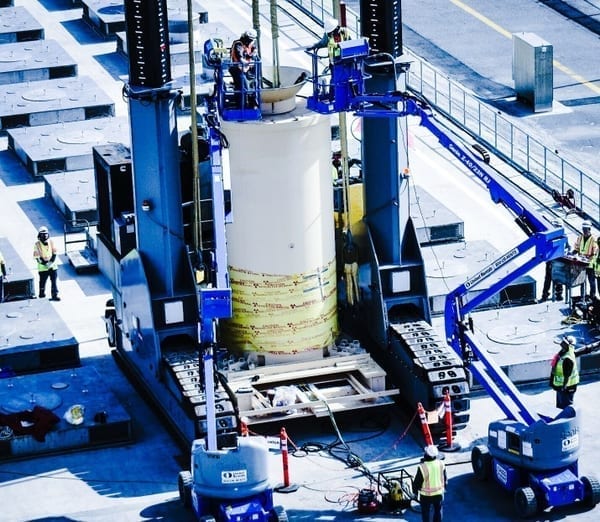
RadWaste Monitor Vol. 13 No. 13
Visit Archives | Return to Issue PDF
Visit Archives | Return to Issue PDF
RadWaste & Materials Monitor
Article 1 of 7
March 27, 2020
SONGS Decommissioning to Temporarily Ramp Down in Face of COVID-19

Southern California Edison said Wednesday it is preparing to temporarily ramp down some decommissioning operations at the retired San Onofre Nuclear Generating Station (SONGS) in response to the continuing COVID-19 pandemic.
The utility expects in the next few…
Partner Content